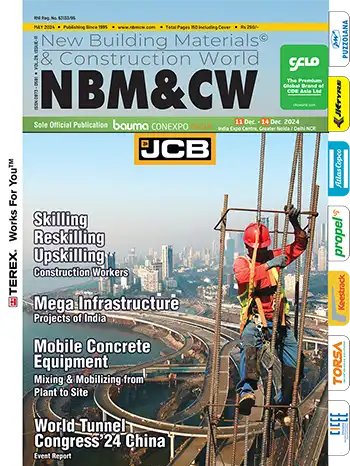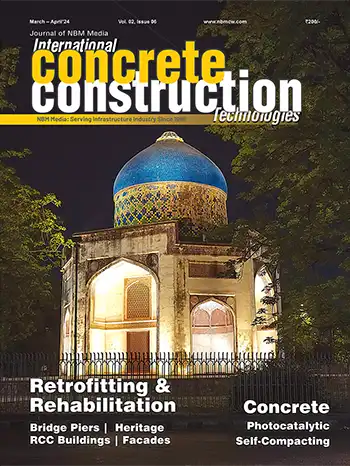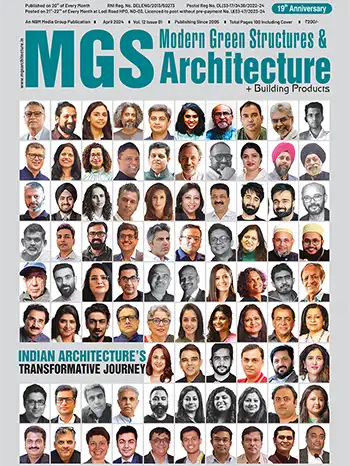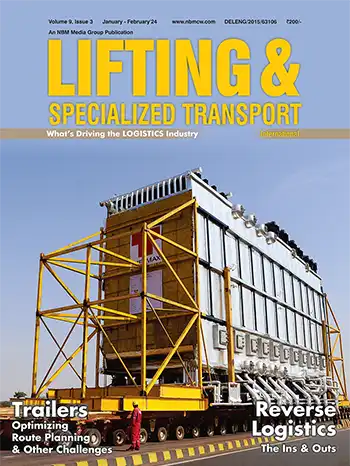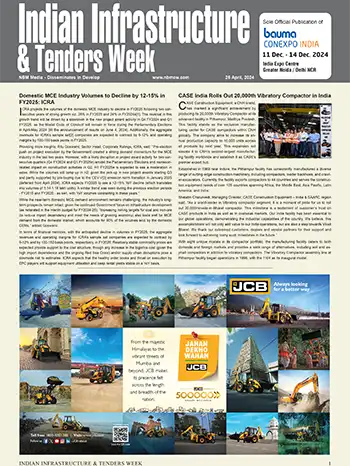KEF Infra: A Newer Approach to Infrastructure Construction
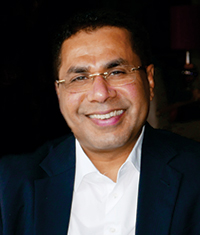
What do you have to say about your decision to sell your foundry business, which had come to be ranked amongst the top three foundries in the world?
For an entrepreneur, going through the sales of his company, is emotionally turbulent. Emirates Techno Casting was no ordinary business; it was more of a family of over a thousand people. With the average age of employees being 25-35 years, it had a campus environment. Every week, the employees’ children came to the community centre we had created.
It was the first foundry in the Middle East. When it came to business, Dubai was a very new country. People all over the world didn’t know much about Dubai. Nobody thought there could be a factory like ours here, which was the challenge we had to face. The foundry was creating value for the region by creating a product out of their own raw materials. I would say that we are one of the pioneers in breaking the myth that innovation is limited to the Western world.
The decision of selling it was one of the toughest decisions I have made. It is not easy to let go off an enterprise that you have founded from scratch.
What led you to enter the highly competitive construction business?
Upon selling Emirates Techno Casting, I had the freedom and the resources to pursue new avenues. From living a life of leisure, my wife Shabana and I instead decided to better the world around us, and we created the ‘Faizal and Shabana Foundation’, our philanthropic endeavour, as well as KEF Holdings, which today has business interests in infrastructure, healthcare, education, metals and investments. Our goal was to provide education, training and healthcare to the less privileged through use of technology and education.
Meanwhile, I also observed that construction is generally so outdated, with almost no technology intervention or advancement, and a labour-intensive and slow process. We started to think differently, and the idea of off-site manufacturing technology came to mind.
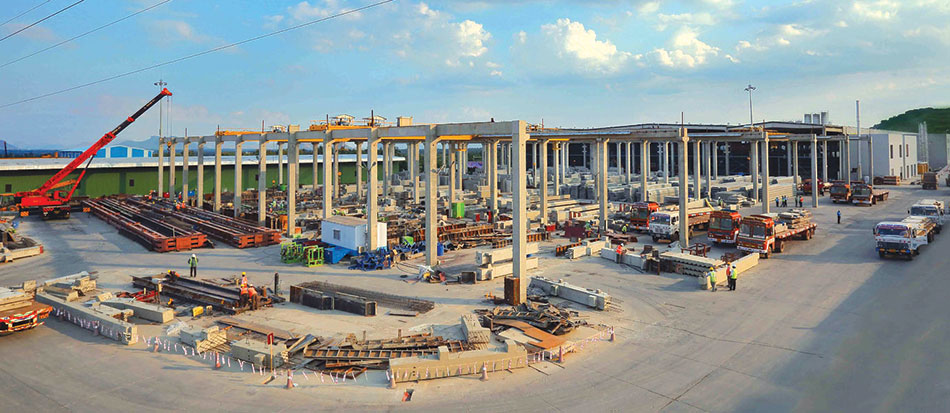
Offsite manufacturing and precast is still very new to India and people need to see proof of the building concept. We were fortunate to find partners like Infosys, Embassy, and the BBMP, who saw merit in our model and gave us some great projects to do. Today, post the execution of these projects, we have been able to win over the trust of many new partners.
We have also struggled with finding the right resources and talent since this is such a new industry, but we are now working with several partners and strengthening both our supply chain and talent pool.
Your vision is to fast forward India’s infra development; how challenging has the initial phase been for KEF?
One of the things that attracted us to India was that we knew we could make an impact, which would go a long way in fast-forwarding India, and this has been our vision behind each of our endeavours.
We chose to enter into the Indian infrastructure market as the offsite manufacturing industry was at a nascent stage at that time, with limited or almost no interest in adopting the technology. We partnered with one such factory that had bought some machines from Germany, and we made a deal with them to run the plant for three months and help train their people. In exchange, they would let us build a new school out of their factory.
Our efforts paid off; we built a school in just 95 days! Since then, we’ve assisted in the upgrading of 65 government schools in Kerala, and we have recently partnered with the Karnataka Government for their dream project of making available clean, healthy and affordable food across the city through Indira Canteens. These canteens, can accommodate up to 80 people at a time and has facilities to cater to a maximum of 250 people in one slot. The most exciting part of this was the race against time as we achieved this feat within a record time of 45 days, which wouldn’t have been possible without our cutting-edge technology and automated processes. In fact, through conventional methods, such a large-scale project would take a few years to be completed.
With a vision to fast forward India, we are at the forefront of the Industry, 4.0 with our fully-integrated world-class design and state-of-the-art manufacturing technology, where a network of smart factories are driven by human endeavor and cyber physical systems to create products that are durable, sustainable, and are manufactured with speed, efficiency and precision.
Our strength lies in the fact that we can offer turnkey solutions to our clients for infrastructure development. By using automation and assembly line production (as seen in the automotive industry), we can minimize irregularities, improve the quality of the building, and deliver better cost and time ROI to our clients.
The kind of technology being used, and the quality of the end-product showcases the various possibilities that we have to update the construction sector in India.
A newer way of doing things - best practices & technology, is vital for infra construction, as with every delayed project, the pace of development further slows down, and this can be detrimental to the growth of essential sectors that impacts society at large.
Precast is a way of building worldwide, but in India it has started very recently; what potential do you see for precast construction in the country?
The world is evolving at a fast pace and economies worldwide are channeling their energies towards becoming future-ready, and infrastructural development is at the heart of their growth strategy. We believe that the infrastructure industry needs a change in approach – a newer way of doing things - and technology is the catalyst that can make the change, as with every delayed project, the pace of development further slows down, which can be detrimental to the growth of essential sectors that impact society at large.
The Indian construction industry is taking quick strides in the field of high-rise constructions in housing and industrial buildings, underground tunnelling, roads, etc. Offsite construction and manufacturing is increasingly seen as an economic and high-quality option. The present economic growth demands faster construction without compromising on quality and without delays, or similar related construction uncertainties. This further justifies the use of precast technology.
The encouraging results as seen in Europe and the Middle East will serve as a further boost for the adoption of offsite construction in India. An option with many advantages, the precast construction industry faces one main concern, which is the transportation of the finished goods to the construction site. However, the rapid growth of road and transport infrastructure will soon address this concern. After overcoming the initial hurdle of informing both buyers and developers about the available technology and its possibilities, we can be sure that precast construction will play a major role in the future of the real estate scenario in India.
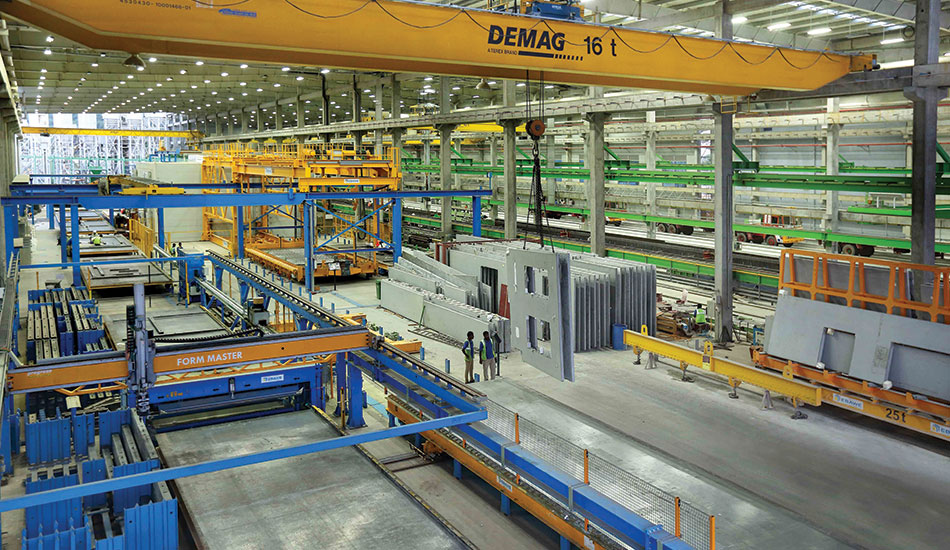
India needs over 20 million homes for the low-income group and the PM has set an ambitious target of building homes for everyone by 2022; how can precast technology help build low cost houses cost-effectively and within the given timeframe?
Affordable housing is of prime focus in India and is one of the top priorities of Prime Minister Narendra Modi. At KEF Infra, we believe prefabrication and modular technology is the most efficient, cost effective and sustainable way to develop a mass development project like the affordable housing programme initiated by the Indian government. While we have worked on a number of private-public partnerships (PPPs) with state governments in India, we are now in talks with the central government, which has expressed “significant interest” in leveraging our technology to fulfil the PM’s goal of delivering 20 million new homes by 2022.
Prefabrication saves money and time as our technology enables us to build homes in just two hours. We can build two-bedroom, fully furnished homes for as low as 6 lakh rupees. We are confident that this technology will change India’s infrastructure landscape. By implementing our expertise, the government can reap incremental benefits in skill, speed and scale, and deliver incredibly affordable houses in a short time. India needs hundreds, if not thousands, of prefab factories across India to meet the demand.
We have set out to bridge the gap in access to quality infrastructure by shaking up the way the world builds. We are building homes in two hours and schools in 30 days.
With a vision to fast forward India, we are at the forefront of Industry 4.0 with our fully-integrated world-class design and state-of the-art manufacturing technology, where a network of smart factories is driven by human endeavor and cyber physical systems to create products that are durable, sustainable, and pioneers speed efficiency and precision.
KEF Infra One at Krishnagiri, Tamil Nadu, is the world’s largest fully-integrated offsite manufacturing facility spread across one million sq.ft., and built at an investment of `650 crore. All work, from designing, engineering to manufacturing every element of a building – from wall panels, hollow core slabs, modular MEP to bathroom and facades, to windows and doors – is done here, using advanced precast and offsite manufacturing technology.
There are 4 specialised units: Precast, Prefabricated Bathrooms, Modular Rooms and Modular MEP, Joinery and Glazing, and 8 interconnected factories within the facility that produce prefabricated rooms and precast products including upholstered furniture, aluminium profiles, marble, granite and wood laminates. Using the prefabricated components, the company constructs buildings in almost half the time taken by conventional building methods, and at a 25% lower cost.
Once ready, the building units are transported by road to the project site, where they are assembled and hoisted into position using cranes. For instance, in a turnkey (hospital) project, every element of the building (structure, façade, rooms, bathrooms, furnishings, modular MEP, fit outs, medical headboards and operating theatres) are designed at KEF Infra One and 80% of the building is manufactured at the factories.
Please tell us about your ongoing prefab projects in India.
Our infrastructure interests in India span healthcare, commercial buildings, education, housing and hospitality sectors. In addition, we have had several PPPs with state governments, who want to leverage our expertise. We have completed projects for the Embassy Group, Infosys, GEMS Education, MEITRA Hospital and the Indira Canteens for BBMP.
We are currently partnered with Kovai Medical Center and Hospital (KMCH) to build the new college hospital building in Kalapatti, Coimbatore. Spread across 650,500 sq.ft. the multi-speciality facility is being developed with an investment of over `200 crore in a record-breaking 15 months. This facility is KEF Infra’s latest hospital project that will be prefabricated at its integrated factory in Krishnagiri, and then shipped to Coimbatore and assembled at site.
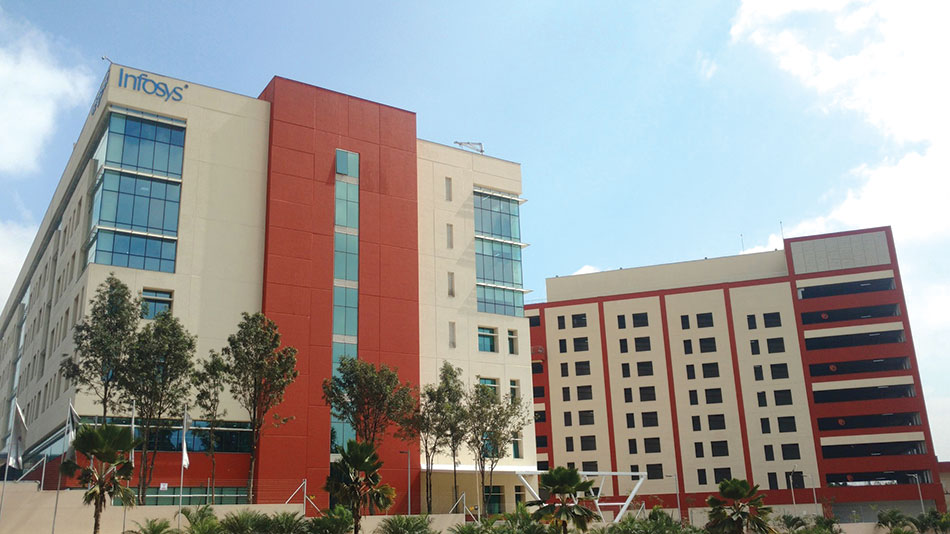
Setting up a plant near the project site to produce building elements and transporting them to the site increases construction cost, so, how does KEF justify this?
No material wastage and delays (as when using manual extensive methods in traditional construction), offset the transportation costs incurred in offsite manufacturing.
What are the challenges?
One of the main challenges in offsite construction is the lack of awareness of the technology available in the minds of the buyers and developers. Another is the poor infrastructure and logistics facilities. Also, there is a lack of skilled manpower.
So, at KEF Infra we have global minds working with us to help upskill our staff. We are also working with institutes like MIT to introduce these new courses at the college level to help students develop these skills early on. However, these areas will surely improve with time as offsite construction begins to gain acceptance in the industry.
KEF Holdings believes in “giving back to the community”. What are its philanthropy activities in India?
Faizal & Shabana Foundation, which was established in 2007 in India as a charitable arm of KEF Holdings, works closely with other stakeholders in the government and business entities to promote initiatives that benefit the community.
Driven by the vision of ‘Giving to Create Impact’, the Foundation has worked in 6 critical areas of development: Education and Youth Development, Healthcare and Wellness Support, Regenerative Sustainable Development, Humanitarian Aid and Assistance; Community Outreach and Support; and Art and Culture Development. Under this, the Foundation has covered programmes such as PRISM (Promoting Regional Schools to International Standards through Multiple Interventions) in collaboration with the Government of Kerala; Krishnagiri School Intervention; Research Support Program for Manipal University.
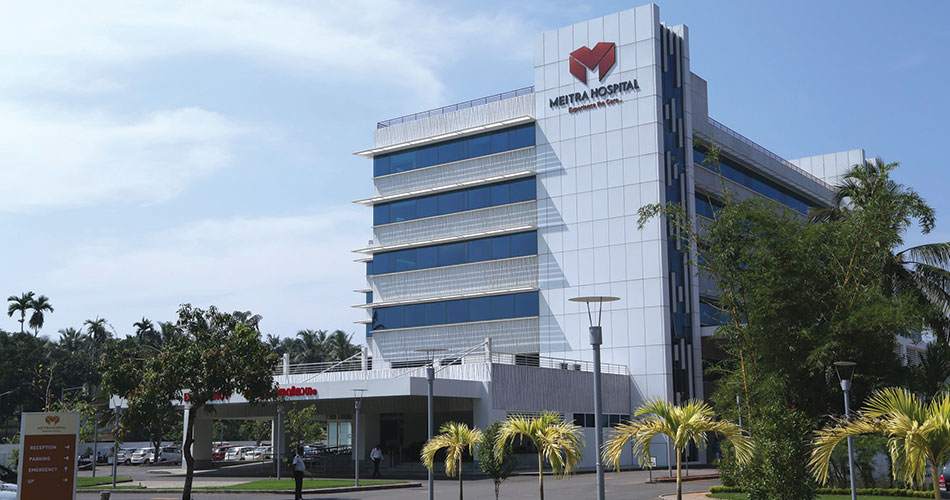
The Foundation also supports key research organisations for their research projects on Aids & Cancer. It has also adopted a whole panchayat covering over 1500 families in Krishnagiri, and has introduced a village intervention model to create sustainable development.
Over the past 10 years, the Foundation has been involved in over 25 programs and projects, which have impacted thousands of lives in India and the Middle East through 20 million USD.
NBM&CW May 2018














